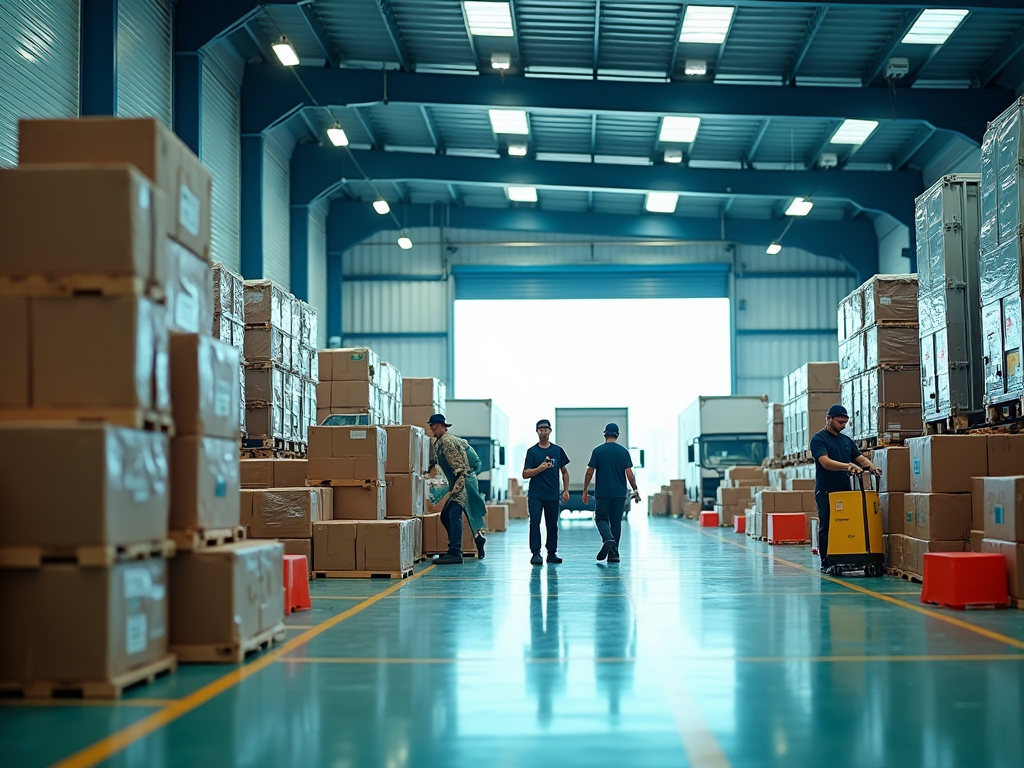Starting a logistics company in Dubai can be a lucrative venture given the city’s strategic location as a global trade hub. With efficient transport and trade infrastructure, entrepreneurs can tap into the ever-growing demand for logistics services. This article will guide you through the essential steps to successfully establish your logistics company in Dubai, from understanding the market to compliance with local regulations.
Understanding the Logistics Market in Dubai

Dubai’s logistics sector has been on the rise, fueled by its position as a central trading hub between Asia, Europe, and Africa. The city’s infrastructure is designed to support logistics, with expansive ports, modern airports, and well-planned road networks. Additionally, the government’s significant investments in free zones and trade facilitation measures create a favorable environment for businesses. Given the increasing demand for e-commerce and supply chain efficiency, the logistics market presents various business opportunities, including warehousing, freight forwarding, and last-mile delivery services. Entrepreneurs should conduct thorough market research to identify the best niches that align with demand trends and local competition.
Key Steps to Establishing Your Logistics Company

Establishing a logistics company in Dubai involves several critical steps to ensure compliance and business viability. Here is a concise guide for you:
- Market Research and Business Plan: Conduct extensive research on market trends, customer needs, and competitors. Formulate a comprehensive business plan outlining your services, target audience, and financial projections.
- Company Registration: Choose your business structure and register with the relevant authorities, such as the Department of Economic Development (DED) or free zone authorities.
- Licensing: Obtain the necessary licenses specific to logistics companies, which may include freight forwarding, warehouse management, and transportation licenses.
- Securing Funding: Explore funding options like bank loans, venture capital, or personal investments to provide the necessary capital for your operations.
- Developing Infrastructure: Establish a reliable logistics infrastructure by securing warehouses, vehicles, technology, and staffing solutions.
Compliance with local laws and regulations is a crucial aspect of setting up a logistics company in Dubai. Businesses must adhere to the UAE’s import/export regulations, customs laws, and specific licensing requirements relevant to their operations. You will also need to engage with the Dubai Customs to ensure proper clearance of freight and compliance with tariffs. Additionally, companies must invest in insurance to protect against loss or damage during transportation. Keeping up with local regulations may involve regular audits and updates, so hiring legal or compliance experts can be beneficial. Understand that operating in free zones can offer distinct advantages, including 100% foreign ownership and tax exemptions.
Capabilities and Technology in Logistics
The logistics sector increasingly relies on technology to enhance operational efficiency. Implementing a robust logistics management system is vital for tracking shipments, inventory management, and optimizing delivery routes. Technologies such as GPS for real-time tracking, automated warehousing systems, and customer-facing tracking platforms significantly improve customer satisfaction and reduce operational costs. Additionally, investing in Internet of Things (IoT) devices can help monitor conditions of goods in transport, providing transparency and reliability. As e-commerce continues to rise, integrating last-mile delivery solutions and developing a user-friendly online presence can further capitalize on market demands.
Conclusion
Establishing a logistics company in Dubai is a strategic move for entrepreneurs looking to tap into a booming market influenced by the region’s well-connected trade routes and increasing e-commerce activity. Through understanding the market landscape, following regulatory requirements, leveraging technology, and planning effectively, you can build a successful logistics business. Although the journey may present challenges, the potential rewards in the thriving logistics sector make it a compelling endeavor.
Frequently Asked Questions
1. What type of logistics services can I offer in Dubai?
You can offer a range of services such as freight forwarding, warehousing, distribution, last-mile delivery, and logistics consulting, catering to various industries including retail, manufacturing, and e-commerce.
2. Do I need a local partner to set up a logistics company in Dubai?
If you choose to register outside a free zone, you will need a local partner who holds 51% of the company’s shares. However, free zones allow 100% foreign ownership.
3. What are the costs associated with starting a logistics company in Dubai?
The costs can vary widely based on your business model, licensing fees, office space, equipment, and initial working capital. It’s advisable to prepare a detailed financial plan.
4. Is a special license required for logistics operations in Dubai?
Yes, specific licenses are required for logistics operations, and these may vary depending on whether you operate in a free zone or the mainland.
5. How can technology improve my logistics operations?
Technology can enhance efficiency through real-time tracking, automated inventory management, data analysis for route optimization, and providing a better customer experience through transparency and reliability.



